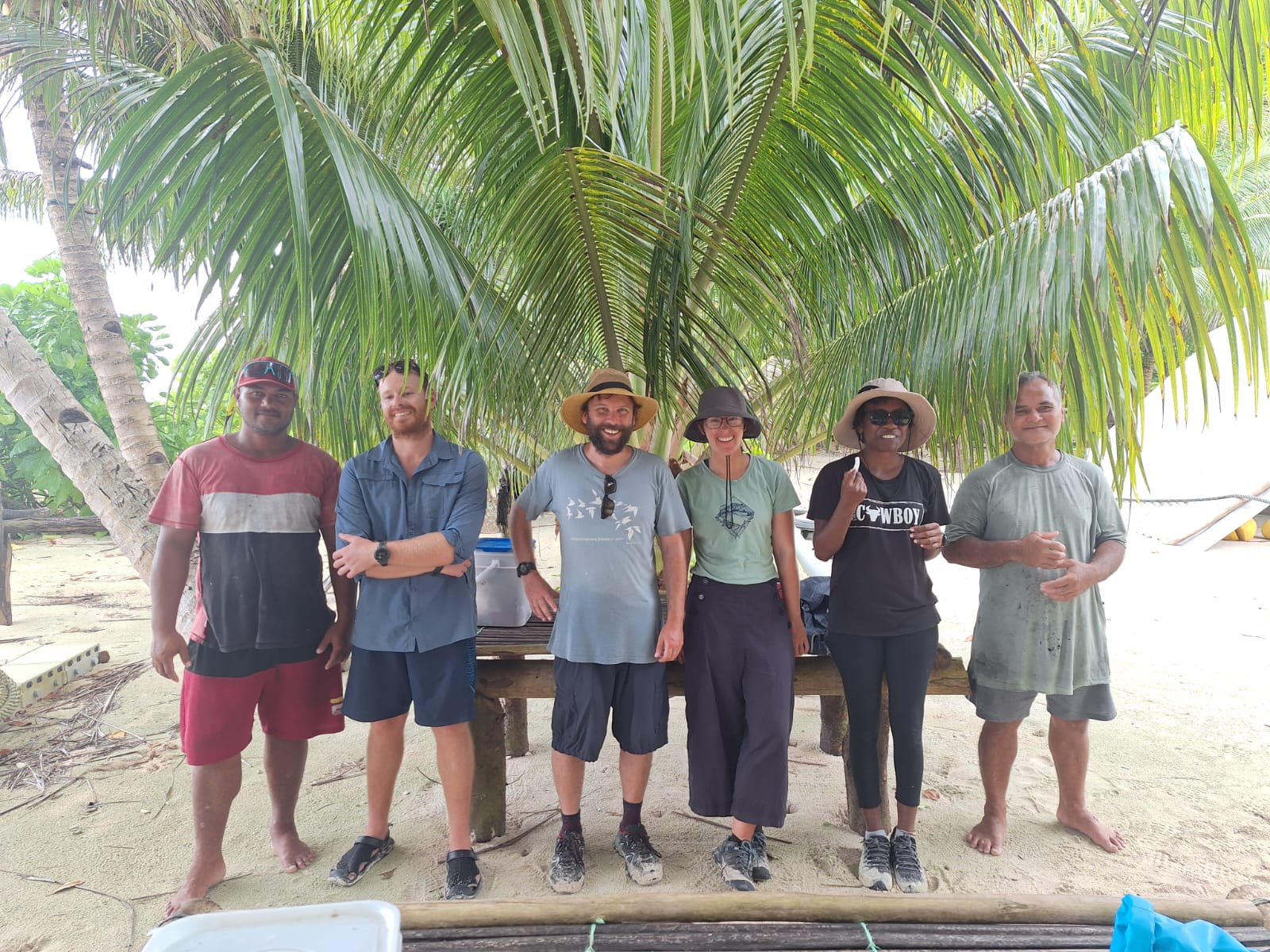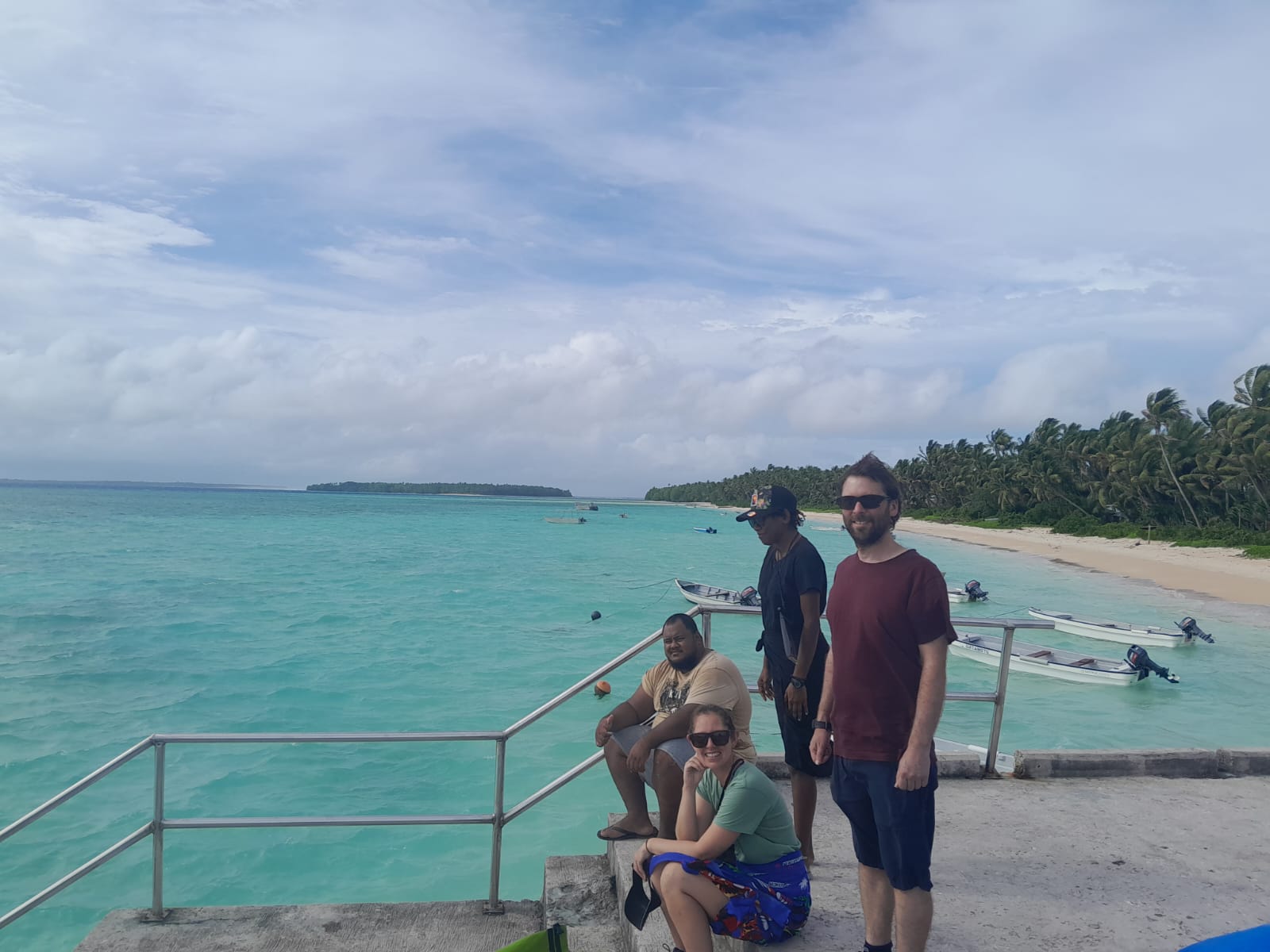March 11, 2025
Press Release: New eDNA Tool Can Detect Invasive Rodents Within an Hour
New environmental DNA technology can help protect vulnerable island ecosystems from destructive invasive species.
We use cookies to help you navigate efficiently and perform certain functions. You will find detailed information about all cookies under each consent category below.
The cookies that are categorized as "Necessary" are stored on your browser as they are essential for enabling the basic functionalities of the site. ...
Necessary cookies are required to enable the basic features of this site, such as providing secure log-in or adjusting your consent preferences. These cookies do not store any personally identifiable data.
Functional cookies help perform certain functionalities like sharing the content of the website on social media platforms, collecting feedback, and other third-party features.
Analytical cookies are used to understand how visitors interact with the website. These cookies help provide information on metrics such as the number of visitors, bounce rate, traffic source, etc.
Performance cookies are used to understand and analyze the key performance indexes of the website which helps in delivering a better user experience for the visitors.
Advertisement cookies are used to provide visitors with customized advertisements based on the pages you visited previously and to analyze the effectiveness of the ad campaigns.
Our new online shop is live!

20 November 2024, Nukufetau Atoll, Tuvalu: In a significant advancement for biodiversity and community resilience in the Pacific, Island Conservation, in partnership with the Tuvalu Department of Environment and supported by the Pacific Regional Invasive Species Management Support Service (PRISMSS) programme, has completed the eradication of invasive rats from four key islets on Nukufetau Atoll.
This effort, part of the PRISMSS’s Predator Free Pacific (PFP) programme, brings renewed hope for the region’s fragile ecosystems and sets a precedent for similar conservation initiatives across the Pacific Islands.
From July to September 2024, invasive rats were removed from Motumua, Sakalua, Teafuaone, and Teafatule islets in Tuvalu. These islets, which serve as nesting sites for Pacific bird species and hatcheries for endangered green sea turtles, were under severe threat from invasive rats that damaged local habitats, depleted natural food sources, and disrupted ecological balance.

“This project was a first for Nukufetau and provides a glimpse of what could be gained with further resources and effort in Tuvalu,” said Island Conservation`s project manager, Mr Jesse Friedlander. “Our hope is that we can find the resources to remove invasive rats from all of the islands within Nukufetau to improve conditions for both people and nature.”
Additionally, the project aims to protect the extensive coconut agroforests that are vital to the Tuvalu communities for essential resources. These agroforests, central to the livelihoods of Nukufetau residents, provide coconuts, crabs, and other natural products that support food security and economic resilience.
With the removal of invasive rats, these agroforest areas can recover, leading to healthier and more abundant harvests, thereby strengthening local food systems and reducing the community’s vulnerability to external food supply disruptions.
“The project activities aims to restore ecological balance on Nukufetau’s islets, by eradicating invasive rats that threaten native flora and fauna,” commented The Tuvalu Department of Environment, National Invasive Species co-ordinator, Mr Sam Panapa. “Removing these predators will create a safer environment for native species, benefiting biodiversity and supporting sustainable practices for the Nukufetau community. Our Department of Environment, in collaboration with Island Conservation and the PRISMSS programme, has played a vital role in these efforts, setting a foundation for future eradication projects that could protect more islands across Tuvalu.”

This initiative is part of the broader PRISMSS-Restoring Island Resilience (RIR) project, a Pacific-led collaboration funded by the New Zealand Ministry of Foreign Affairs and Trade (MFAT), which aims to enhance Pacific Island livelihoods and climate resilience by mitigating the impacts of invasive species on both natural and agricultural ecosystems.
Through the PRISMSS’s coordinated support, local and international experts, along with community members and volunteers from New Zealand, employed specialised rodent eradication techniques, transforming the islets into safe havens for native species. PRISMSS, a coordinating mechanism for scaling invasive species management in the Pacific, connects conservation experts to deliver targeted, cohesive, and accessible support for Pacific Island countries and territories.
The Nukufetau project also fostered strong community engagement, with community members embracing the project through awareness meetings about invasive species risks and the importance of biosecurity measures. Local staff received specialised training in ground-based eradication techniques, building local capacity to ensure long-term protection and resilience in Tuvalu.
“The recent removal of rats through the collaborative efforts of PRISMSS PFP technical leads, partners and country focal points hopefully marks the beginning of sustained efforts to eradicate invasive species on Nukufetau to increase the resilience of these communities to climate change,” said the Secretariat of the Pacific Regional Environment Programme’s (SPREP) Invasive Species Adviser, Mr David Moverley. “Building on work already achieved under the GEF6 Regional Invasives Project, it further sets the stage for future conservation work across the atoll and Tuvalu as a whole.”
The completion of the Nukufetau eradication reflects the shared commitment of Pacific communities, government agencies, and international partners in safeguarding biodiversity and enhancing the resilience of island communities amid growing environmental challenges.
The PRISMSS Predator Free Pacific program, led by Island Conservation, brings critical expertise to this project, empowering local communities with sustainable strategies to protect indigenous biodiversity and strengthen ecosystem resilience.
A post-eradication monitoring exercise will be conducted in August 2025 to ascertain the success of the eradication efforts.
————————————————————————————————————————–
About PRISMSS: The Pacific Regional Invasive Species Management Support Service (PRISMSS) is a coordinating mechanism designed to facilitate the scaling up of operational management of invasive species in the Pacific. PRISMSS brings together experts to provide support within the Pacific region with a focus on protection of indigenous biodiversity and ecosystem function. As a service provider, PRISMSS provides a comprehensive suite of support services in a cohesive, effective, efficient, and accessible manner to Pacific Island countries and territories.
Restoring Island Resilience (RIR): The PRISMSS – Restoring Island Resilience (RIR) is a New Zealand-PRISMSS collaboration project that aims to improve Pacific Island Countries and territories livelihoods and resilience to climate change by reducing the impact of invasive species on natural and agricultural ecosystems through the five PRISMSS programmes.
The PRISMSS Predator Free Pacific (PFP) programme, led by Island Conservation leads the charge in removing invasive predators from Pacific islands, restoring balance to delicate ecosystems. With support from BirdLife International, the efforts are not only preventing extinctions but also enhancing ecosystem health and resilience.
About Island Conservation: Island Conservation’s mission is to restore islands for nature and people worldwide and we collaborate with local communities, government management agencies, and conservation organizations on islands with the greatest potential for preventing the extinction of globally threatened species. Island Conservation is a United States-based 501(c)(3) charitable organization that restores islands by removing introduced, damaging invasive species and accelerating the recovery of native plants and animals. We utilize innovative technology and techniques to work more efficiently and showcase the many benefits of holistically restored islands for biodiversity, climate resilience, ocean health, and sustainable development across the globe. Visit us at islandconservation.org.
For further information, contact:
Mr Sam Panapa
National Invasive Species co-ordinator
Department of Environment
Tuvalu
Mr Dominic Sadler
Project Manager
PRISMSS
Sally Esposito
Strategic Communications Director
Sally.esposito@islandconservation.org
Check out other journal entries we think you might be interested in.
Notifications